THE TYRE INDUSTRY: WORKING AS ONE
- By Sharad Matade & Juili Eklahare
- October 12, 2022
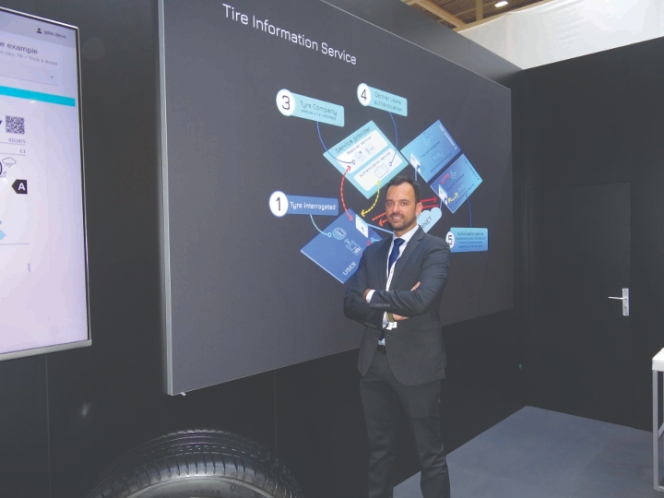
The Global Data Service Organisation (GDSO) for tyres and automotive components is only a few months old in the tyre industry but is doing an exceptional job at elevating it. The international non-profit organisation standardises data related to tyres and defines solutions to access and exchange data. Moreover, it establishes worldwide agreement on a web service to facilitate data access by stakeholders. Tyre Trends caught up with Riccardo Giovannotti, GDSO Secretary General, who explained how GDSO functions, the significance of sharing knowledge within the tyre industry and about getting more tyre manufacturers on board with the organisation.
Can you tell us a bit about GDSO?
GDSO was established in January 2022, which makes us pretty young. It was founded by five founding members that are tyre manufacturers – Bridgestone, Continental, Goodyear, Michelin and Pirelli. GDSO wants to be technology-agnostic; therefore, we aren’t paying attention to just one specific technology. We want to stick to standardised technology in line with the first word of our pay-off: ‘Standardise. Share. Simplify.’
When we talk about data, that could be static data like the tyre brand, tyre dimension, date of production etc. or also some possible performance data like the rolling resistance value, the uniformity data etc.
Today, the bigger challenge for the tyre industry is to retrieve tyre data. Visual inspection, data inspection etc. are causing a lot of waste of time and missed opportunities, leading to a lack of profitability – not just for the tyre manufacturers but all the stakeholders involved in the tyre value chain.
When you say data, what kind of data do you mean?
I mean the data around the tyre.
The tyre industry is one that is not very keen on sharing data, especially when it comes to raw materials. So what is the purpose of coming together to retrieve data?
We know that everyone in the industry is competing fiercely with one another. However, in the past five to six years, the tyre industry has realised that the competition will change. We are entering a digital era of opportunities and our vehicles are becoming more connected. Hence, we really need to step up together and elevate the tyre sector to the digital age. After that, tyre manufacturers will definitely compete with one another. But before we get there, we have to join forces so that the scale-up of the entire industry may be quicker. Thus, it is a win-win situation.
Plus, we need to share our knowledge with one another. Sharing knowledge is not an issue if we want to solve the industry’s problems together. In fact, sharing knowledge presents opportunities. So it’s all about the mindset – to work together towards opportunities. And I am sure that tyre manufacturers will start competing once the data is available in an electronic format on the services to be provided, which would be very interesting. Therefore, we would like to unlock this potential through the sharing of knowledge and information, which should be further based on simplification.
Speaking of knowledge sharing, are you open to having more GDSO members to get their insights?
While we already have a solution for retrieving data, we are open to engaging new members. Five members are not enough, and we need to bring the tyre industry to another level. In order to achieve this, we need new members to join us who can share their input from a technical standpoint. Hence, our organisation is already shaped with a clear governance that wants to be transparent. We want to have a shared platform from a collaboration standpoint. For this, we need the cooperation of different technical aspects made by different tyre manufacturers. The point is to come together for one common goal.
Can you tell us more about your solution?
The solution that we have invented is something that is not disruptive. It is based on the common commitment towards standardisation: the Tyre Information Service (TIS). Before launching the solution, we were looking for some benchmarks. While we had a clear understanding of ‘what’ the problem was, we wanted the ‘why’ to exist. Thus, before addressing the ‘how’, we decided to go for a benchmarking. It was possible that some other industry (not necessarily the vehicle or tyre industry, but beyond that) may have tackled the same challenge. And the answer was that no one had done it. This was because of the old mindset that competitors cannot share. So we engaged with stakeholders and went through ISO, GS1 etc. and brought about the solution. Our target is to work with entities and not with a single owner of the vehicle or tyre. The intention is to create an ecosystem.
The fact is that the tyre industry was still perceived as an old industry. Something like a beauty product – just a black product placed on the road. However, at the same time, we decided to consider this product as an asset, because from an engineering standpoint, it is the first sensor for the vehicle. Therefore, we can start understanding the friction condition, the road condition, the vehicle behaviour and so on. Earlier, every tyre manufacturer would start building services and solutions starting from this. Hence, we have an engineering angle but also new digital services. In truth, the tyre industry is also working on prognostic services. Ultimately, the concept behind unlocking the potential is to enable services and solutions that may make mobility safer and more sustainable.
Do you have data analysts on your team?
No, we don’t. GDSO acts as the highway controller – we show and provide the ticket to the correct entrance and the correct exit. However, the data and data ownership remain with the tyre manufacturer. We just provide an interface and a platform where the data provided by the tyre companies can be seen. This highway should just be an additional asset to be used and not burden the different stakeholders.
How are you making sure that the data is secure?
Cybersecurity does not really apply to GDSO. However, we want our members to have high standards of cybersecurity. We want the members and tyre manufacturers to sit together and set the standard that they must adopt for cybersecurity to apply to the TIS.
Being a non-profit organisation, what is the source of income for GDSO?
Our only source of income is the membership fees. Also, in any case, every start-up will be sustainable from an economic standpoint as well. And this is what we keep in mind as members, that is, to be sustainable as an organisation. Thus, we are already working on creating new services that we may sell (but not to make profits). The organisation itself is robust enough to be long-lasting.
Is it easy to get more tyre manufacturers on board with GDSO, especially Asian manufacturers who are establishing their base in Europe?
We are already in the spotlight made by the big tyre manufacturers. Besides, different tyre associations were involved in this journey from the very beginning. I am in talks with Japan Automobile Tyre Manufacturers Association (JATMA) about the latest updates in the tyre industry and how they can now apply in order to be members of GDSO as well. Similarly, I am doing the same with other European and American tyre manufacturers. Besides, I also have plans on getting in touch with the Chinese tyre manufacturers. Hence, the momentum is quite good.
Nevertheless, I think the biggest challenge is going to be telling some of the tyre mould companies – which do not have a very global perspective and not a very long business plan – that digitalisation is not an option; it is a must and just a matter of time. I understand that these mould companies tend to concentrate more on daily, manufacturing-oriented activities. They may not have a clear signal of digitalisation as their customers are not demanding it yet. But they can start by having a clear understanding of what will be the long-term view – even if not by implementing digitalisation immediately – and can plan a strategy for the years going forward.
- INDIAN TYRE INDUSTRY
- TYRE RETREADING
- BIS STANDARDS
- IS 15704
- ECE R109
- CIRCULAR ECONOMY
- MSME CHALLENGES
- AUTOMOTIVE REGULATION
- CARBON REDUCTION
- FREIGHT
- LOGISTICS
Retreading Hangs In Balance Over Regulatory Conundrum
- By Gaurav Nandi
- December 30, 2025
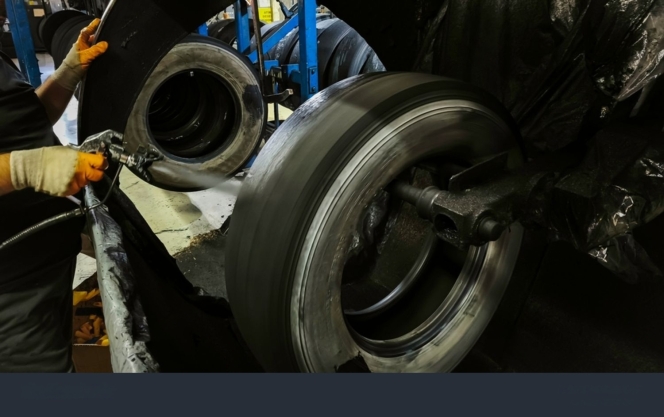
A population of over 1.4 billion people catapulting into the world’s third largest automobile market with four million trucks plying across a road network of 6.3 million kilometres supported by a USD 13.4 billion tyre market and a mining sector contributing around 2–2.5 percent of the country’s GDP demonstrate the strength of India’s automobile, freight and tyre sectors.
The story doesn’t end there as the Central Government adopts a strategic approach on reducing carbon emissions across these verticals, especially automobile and tyres, with targets such as the Net Zero Carbon Emissions by 2070, battery electric vehicles target by 2030, zero-emission truck corridors, Extended Producer Responsibility for the tyre sector; the list just goes on.
Amidst all such statistics and targets, a silent spectator remains the old and varied sector of tyre retreading. In a recent news story reported by Tyre Trends, the Indian Tyre Technical Advisory Committee (ITTAC) had made a proposal to Tyre Retreading Education Association (TREA) for mandating certain standards that will improve the quality of retreads. ITTAC has made recommendations to the BIS committee. TREA is part of the same committee. ITTAC and TREA are recommending different standards.
These standards included BIS retread standards, namely IS 15725, IS 15753, IS 15524 and IS 9168. The ITTAC had partially aligned Indian requirements with ECE R109, the European regulatory benchmark.
In a reply to the proposal, which was accessed by Tyre Trends, TREA urged the Indian Tyre Technical Advisory Committee to seek a deferment or non-applicability of BIS standard IS 15704:2018 for retreaded commercial vehicle tyres, warning that mandatory enforcement could cripple the sector.
In the letter, TREA argued that IS 15704:2018 is largely modelled on new tyre manufacturing norms and is technically unsuitable for retreading, which is a restoration and recycling process.
The standard mandates advanced laboratory tests such as spectrometer-based rubber analysis, endurance testing and compound uniformity checks, requirements that most retreading units, particularly small and medium enterprises, are not equipped to meet
The association highlighted that even large retreaders lack the infrastructure and skilled manpower needed for BIS-grade testing, while the sheer number of retreading units would make inspections and certifications operationally unmanageable for regulators.
TREA warned that compliance costs linked to machinery upgrades, audits and quality control could force 70–80 percent of units to shut down, leading to job losses, higher fleet operating costs and adverse environmental outcomes due to reduced recycling
Instead, TREA proposed that BIS prioritise retreading-specific standards such as IS 13531 and IS 15524, which focus on materials, process control, safety and quality consistency.
The body has also called for a phased transition roadmap, MSME support and industry training before any stricter norms are enforced, stressing that abrupt implementation would undermine the sector’s role in India’s circular economy.
The conundrum
India has a total of 36 administrative divisions comprising 28 states and 8 union territories. The tyre retreading sector has been continuously supporting circularity goals since the early 1970s across the world’s largest economy without getting mainstream recognition.
Even after five decades in service, the industry battles different bottlenecks including fragmentation, manpower shortage, tax pressures brought about by the recent GST revisions and now the implementation of such standards, just to name a few.
The sole practice that can simultaneously reduce carbon emissions from tyres and extend tyre life is assumed the nemesis of an ‘infamous and dangerous practice’ in some states of the country.
However, the industry has been drawing its techniques and quality parameters from the world’s oldest retreading economy, Europe.
“Big retreaders in India already have the necessary processes in place that conform to IS 15524 standards. However, as the standard is not yet mandated, we have voiced support for it because it is process-oriented and outlines how retreading should be carried out, including buffing and building procedures,” said TREA Chairman Karun Sanghi.
He added, “This standard focuses on how the work is done rather than imposing product-level testing that cannot be practically implemented. The current debate on IS 15704 stems from it being fundamentally incompatible. The standard includes requirements such as sidewall marking and destructive testing of retreaded tyres, which are impractical in a retreading environment where each tyre differs in brand, size, application and usage history,” he added.
Destructive testing, he argued, assumes uniform batch sizes. In retreading, where every casing is unique, testing even a single tyre would mean destroying finished products without yielding representative results. Applying such a framework would effectively require the destruction of every tyre in a batch, making compliance unviable.
“We have submitted our response to ITTAC and are awaiting feedback from the committee. We remain open to continued dialogue and will engage further once the committee responds to our submission,” said Sanghi.
According to him, a typical retreader processes about 300 tyres a month across multiple brands including MRF, JK Tyre, Apollo and Michelin and applications ranging from buses and trucks to mining vehicles. These casings vary widely in load cycles, operating conditions and duty patterns, often across several models from the same manufacturer.
The committee has cited European standard ECE R109, but Sanghi points to structural differences: “Europe is a global retreading hub where tyre manufacturers such as Michelin and Bridgestone dominate operations, collect their own tyres, retread them and return them to fleets, making batch-based destructive testing relevant. A similar model exists in US, where large tyre companies lead retreading and largely self-regulate without a single overarching standard. The Indian scenario is different, especially with a fragmented market.”
He stressed that the industry is not opposed to standards but to those that cannot be practically applied, warning that adopting European manufacturing-oriented norms without accounting for India’s market structure and operating realities would be counter-productive.
The debate is no longer about whether standards are needed but whether they are fit for purpose. Without accounting for India’s fragmented retreading ecosystem, enforcing impractical norms could dismantle a circular industry in the name of compliance.
TGL Season 2 Kicks Off With Hankook As Founding And Official Tire Partner
- By TT News
- December 29, 2025
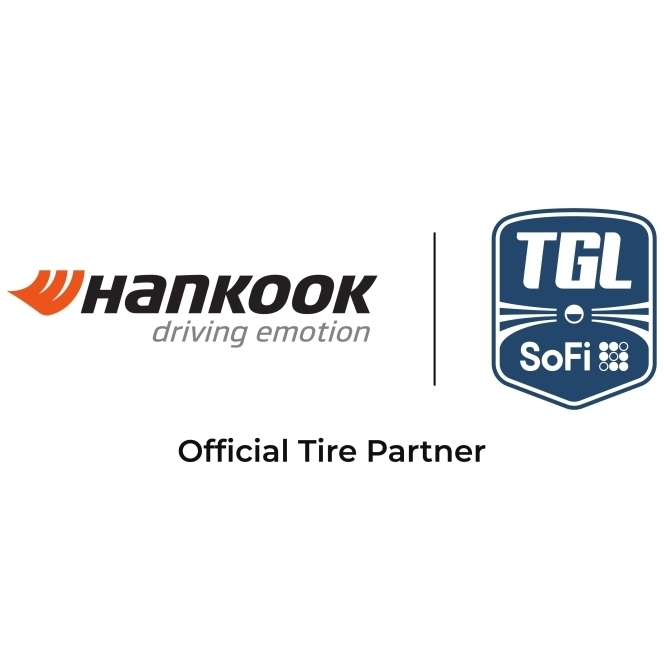
The second season of TGL Presented by SoFi, where Hankook Tire serves as the Founding and Official Tire Partner, commenced on 28 December 2025. This innovative league, a venture of TMRW Sports with backing from icons like Tiger Woods and Rory McIlroy, represents a strategic alignment for Hankook, uniting two entities driven by technological advancement. The partnership provides a global platform to reinforce Hankook's premium brand positioning across North America and worldwide through extensive visibility during broadcasts and at the state-of-the-art SoFi Center in Florida.
This unique venue embodies the league's fusion of sport and technology, featuring a massive simulator with a dedicated ScreenZone and a dynamic GreenZone. This area, equipped with a turntable and over 600 actuators, meticulously replicates real-world golf conditions indoors, creating an immersive arena experience. The competition itself is fast-paced and engaging, with teams of PGA TOUR players competing in Triples and Singles sessions over 15 holes. Innovative elements like the point-doubling ‘Hammer’, real-time strategy via ‘Hot Mic’ and a Shot Clock ensure a dynamic spectacle for fans.
The season opener presented a compelling narrative as a rematch of the inaugural finals, pitting the undefeated Atlanta Drive GC, featuring Justin Thomas and Patrick Cantlay, against a determined New York Golf Club squad led by Matt Fitzpatrick and Xander Schauffele. This match set the tone for an intensive season running through March, where six teams and 24 top golfers will compete. For Hankook, this partnership is more than signage; it is an active engagement with a global community, delivering a distinctive brand experience that bridges cutting-edge mobility and sport for enthusiasts everywhere.
Dunlop Secures CDP ‘A List’ Recognition For Climate Change And Water Security
- By TT News
- December 29, 2025
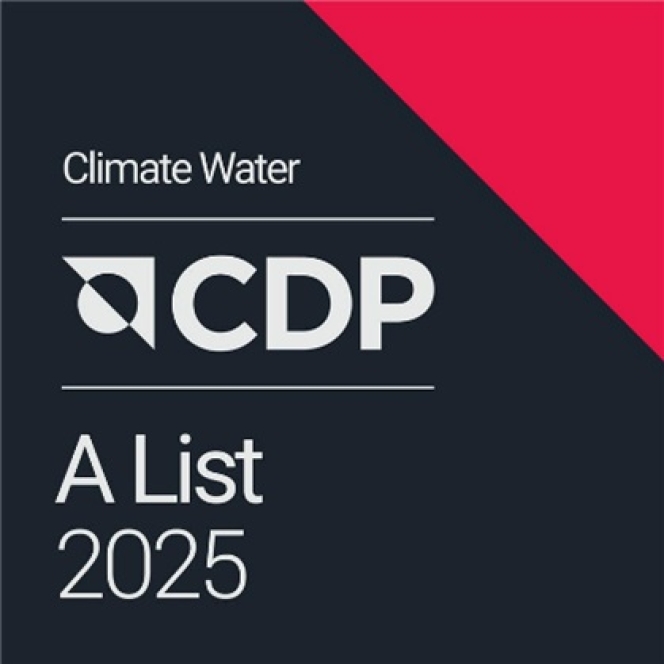
Dunlop (company name: Sumitomo Rubber Industries, Ltd.) has made its way to the annual A-List of CDP for climate change and water security. This premier designation, awarded for the first time to the company in the 2025 evaluation, recognises world-leading performance in transparency, risk management and environmental action. CDP’s annual assessment is a key benchmark for corporate sustainability across climate, water and forests.
This achievement stems from the Group’s integrated approach to material issues outlined in its corporate philosophy. It treats the interconnected challenges of climate change, biodiversity and the circular economy holistically, advancing concrete initiatives under its long-term ‘Driving Our Future’ sustainability policy.
On climate, the Group’s science-based emission reduction targets for 2030 are validated by the Science Based Targets initiative. Operational efforts include pioneering green hydrogen production at its Shirakawa Factory and developing tyres made entirely from sustainable materials by 2050. The company also works to reduce emissions across its supply chain, lowers tyre rolling resistance to improve vehicle fuel economy and extends product life through retreading.
For water security, the strategy is driven by localised risk assessments at global production sites. In seven facilities identified as high-risk, the goal is to achieve 100 percent wastewater recycling by 2050. Progress is already evident, with the company’s Thailand factory reaching full wastewater recycling in 2024.
These coordinated actions on multiple environmental fronts formed the basis for the Group’s simultaneous top-tier recognition in both critical categories from CDP.
Bridgestone Launches Co-Creation Initiative With Ethiopian Airlines Group
- By TT News
- December 29, 2025
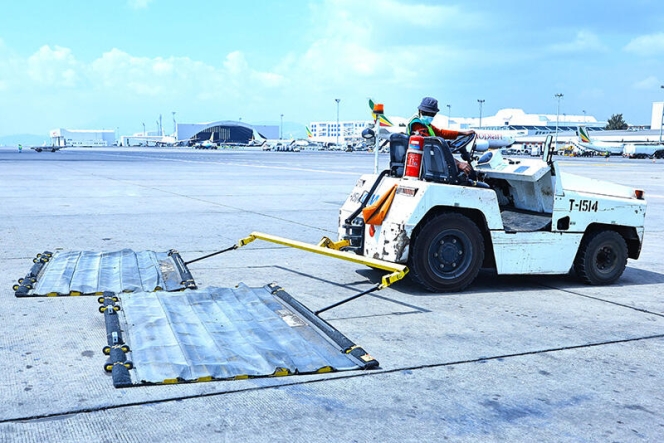
Bridgestone Corporation has initiated a novel co-creation programme in partnership with Ethiopian Airlines and Ethiopian Airports, focused on enhancing aviation safety at Addis Ababa Bole International Airport. This marks Bridgestone’s first sustained three-way collaboration with both an airline and an airport authority, targeting the reduction of Foreign Object Debris on runways and taxiways to support safer and more reliable aircraft operations.
The project was prompted by tyre-related incidents linked to debris at the airport, which previously risked disrupting flight schedules. Leveraging its specialised system for inspecting used airline tyres and analysing debris data, Bridgestone assessed conditions at the hub and proposed a tailored action plan. The company provided continuous support by analysing debris distribution patterns, developing visual hazard maps, advising on efficient collection methods and conducting training to raise awareness among airport personnel.
These sustained efforts have yielded significant results, substantially lowering the rate of tyre damage caused by runway debris compared to levels before the collaboration began. This reduction has supported improved on-time performance for Ethiopian Airlines while advancing overall operational safety. Additionally, the initiative has encouraged greater use of retreaded tyres, promoting economic efficiency and environmental sustainability within the airline’s operations.
Looking ahead, Bridgestone and Ethiopian Airlines Group plan to deepen their co-creation efforts, aiming to generate further value for the aviation sector and broader society through continued innovation and partnership.
Retta Melaku, Chief Operating Officer, Ethiopian Airlines, said, "At Ethiopian Airlines, the safety of our passengers, employees and aircraft is a priority. We are pleased to collaborate with Bridgestone to further strengthen our efforts in reducing FOD at Addis Ababa Bole International Airport and ensure safe operations at the hub airport."
Getaneh Adera, Managing Director, Ethiopian Airports, said, "We remain fully committed to upholding the highest safety standards at Bole International Airport at all times. This significant achievement in reducing FOD is the result of our strong commitment for safe operations and close collaboration with Bridgestone. Through our co-creation activities, we are pleased to have realised safer operations with enhanced productivity and economic value."
Jean-Philippe Minet, Managing Director, Bridgestone Aircraft Tire (Europe) S.A., said, "By combining the learnings and insights from Ethiopian Airlines' operational issues with our analysis technology and know-how, we have deepened our co-creation to propose customised solutions. We are delighted to contribute to safe aircraft operations with peace of mind and to improved operational productivity through the co-creation of efficient FOD reduction on airport surfaces. Through further expansion and evolution of this solution, we will amplify the value of our ‘Dan-Totsu Products’, trust with our customers and value of the data for creating new value."







Comments (0)
ADD COMMENT